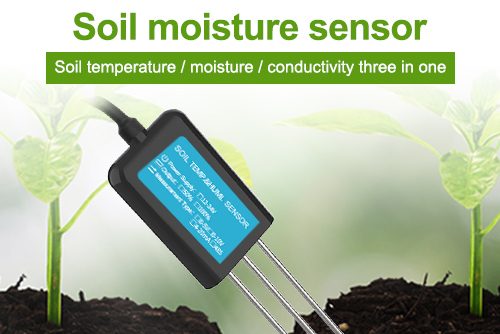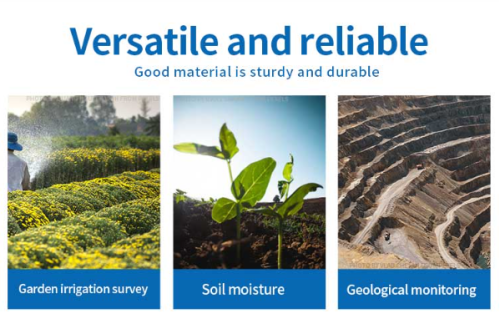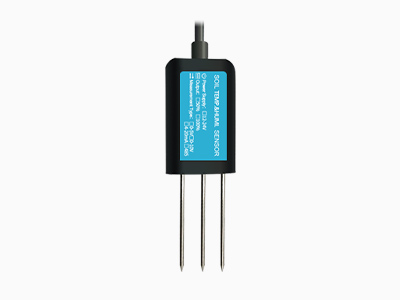There has been a major shift in the agricultural industry towards precision farming practices. One of the key tools driving this change is the soil moisture probe. These devices provide farmers with accurate and real-time information about the water content in their fields, allowing them to make informed decisions about irrigation scheduling, nutrient management, and crop selection.

Advantages of Soil Moisture Probes:
Efficient Water Management:
Soil moisture probe help farmers optimize irrigation schedules by providing accurate data on soil moisture levels. This ensures that crops receive just the right amount of water, reducing wastage and saving costs.
Improved Crop Yield and Quality:
By maintaining optimal soil moisture levels, farmers can increase crop yield and quality. Overwatering or underwatering can both negatively impact plant growth and development, leading to lower yields and potentially poorer crop quality.

Sustainable Farming Practices:
Soil moisture probe promote sustainable farming by reducing unnecessary water use and preventing over-irrigation, which can lead to soil erosion, waterlogging, and salinization. By implementing precision irrigation strategies based on soil moisture data, farmers can minimize these environmental impacts.
Climate Change Adaptation:
As climate patterns become more unpredictable, soil moisture probe can help farmers adapt to changing conditions. For example, during droughts, they can identify areas that require additional watering, while during wet periods, they can prevent over-irrigation, thus conserving water resources.
Applications of Soil Moisture Probes:
Agricultural Monitoring:
Soil moisture probe are widely used in agriculture for monitoring soil moisture levels in fields, greenhouses, and nurseries. They can be installed at various depths to monitor different soil layers, providing a comprehensive understanding of water distribution within the soil profile.
Environmental Monitoring:

These probes also play a crucial role in environmental monitoring. They help scientists study soil moisture dynamics in ecosystems, assess water availability for plants, and predict the potential for landslides and floods.
Horticulture and Turfgrass Management:
Soil moisture probes are useful in horticulture and turfgrass management, where maintaining optimal soil moisture levels is critical for plant health and aesthetics. They enable managers to adjust irrigation schedules based on actual soil moisture conditions, rather than relying on subjective assessments or fixed schedules.
Research Applications: Soil moisture probes are valuable tools for researchers studying soil physics, hydrology, and plant-water relations. They provide precise data on soil moisture dynamics, helping researchers understand complex processes such as infiltration, evaporation, and root water uptake.
Challenges and Future Developments:
Despite the numerous benefits of soil moisture probe, there are still some challenges to overcome. These include issues related to probe installation, calibration, and maintenance, as well as the need for reliable and user-friendly data acquisition and analysis software.
However, ongoing advancements in sensor technology, wireless communication, and data processing are expected to address many of these challenges. The integration of artificial intelligence and machine learning algorithms will further enhance the accuracy and reliability of soil moisture data, enabling more efficient and effective decision-making in agriculture and environmental management.
Conclusion:
Soil moisture probe have already made a significant impact on the agriculture industry and environmental management. As technology continues to advance, we can expect these devices to play an even greater role in promoting sustainable farming practices, conserving water resources, and ensuring global food security.
